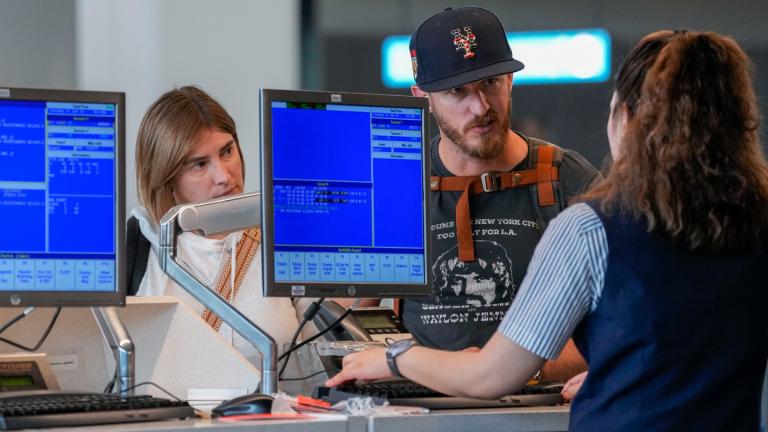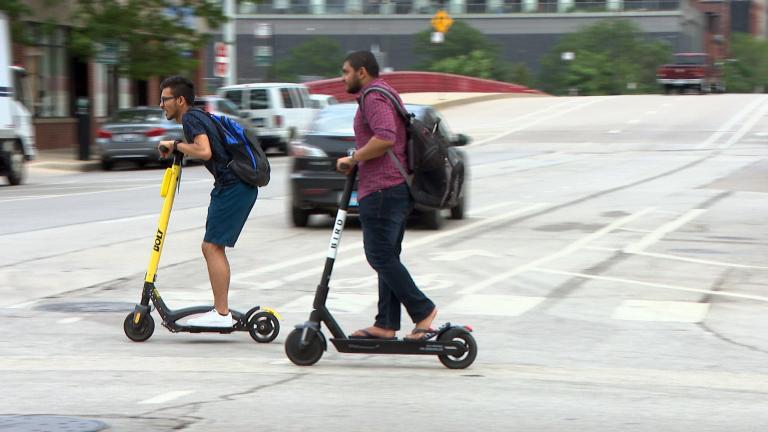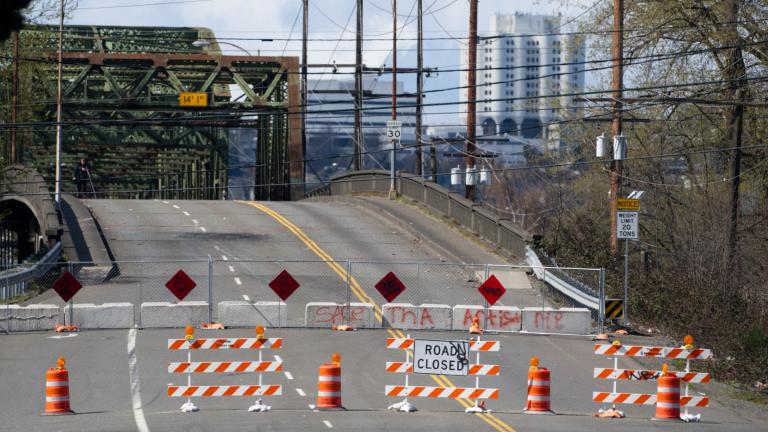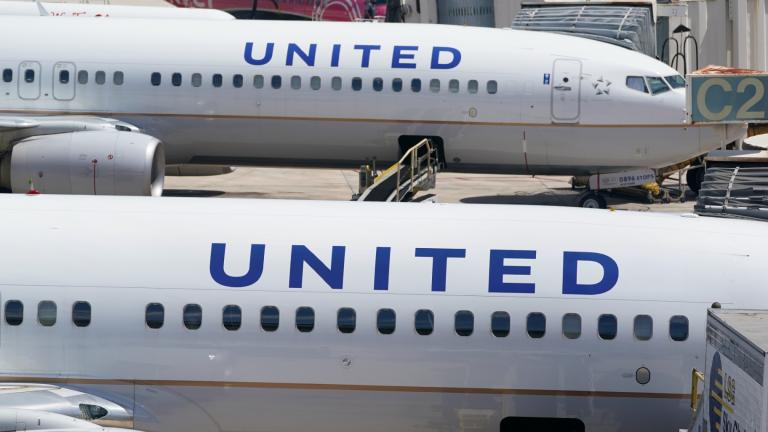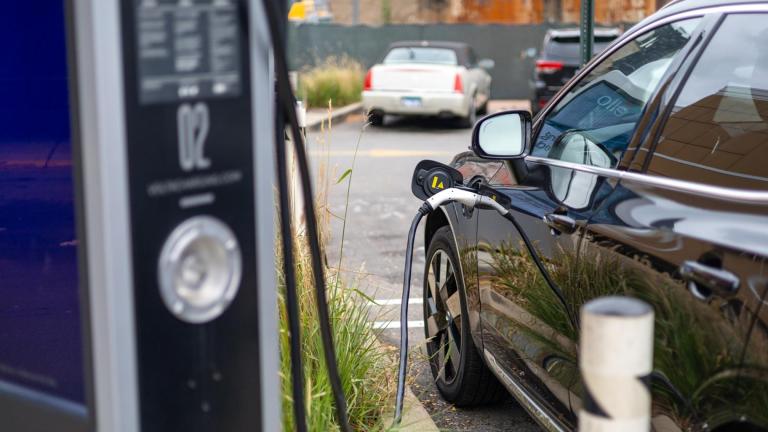The countdown is on for railroad companies and unions to reach a deal. If one isn’t reached by late Thursday night, workers could strike.
That would have a big impact, most immediately for commuters.
Metra is canceling trains in and out of Chicago after rush hour Thursday, including certain night trains on major lines, the BNSF to and from Aurora, Union Pacific North to and from Waukegan, the Union Pacific Northwest, which runs to and from Harvard, and the Union Pacific West, which goes in and out of Elburn.
Amtrak has canceled all long-distance trips for Thursday.
The Illinois Service, which runs between Chicago and Carbondale, is among the state-supported routes that won’t run on Thursday night.
In a statement Wednesday night, Amtrak said it was beginning “phased adjustments to our service in preparation” for a possible rail strike that “could significantly impact intercity passenger rail service.”
The cancellations come even though Metra and Amtrak aren't part of the negotiations, and their workers are not threatening any work stoppage. Rather, it’s because their trains run on the rail infrastructure that's owned by the major companies that are in the standoff with engineers and conductors.
“So we’re dependent on them to operate the railroads, and if their people aren’t there then Amtrak can’t operate efficiently, Metra can’t operate efficiently,” civil engineer Joe Schofer, a transportation expert with Northwestern University, said.
While people are most familiar with the Metra and Amtrak trains on which they travel, Schofer said freight railroads can seem invisible.
“So we don’t pay that much attention to railroads but they’re really important to the things we buy, the things that we manufacture and the things that we grow and send overseas,” he said. “A lot of the bulk agricultural products – so not tomatoes, but grain and soybeans and corn – move by the railroads. A fair proportion of that is export freight which is very important because it brings in revenue to the United States and to farmers.”
And a heads up to internet shoppers: Rail plays a big role in intermodal freight. Many e-commerce packages purchased on the internet are shipped via both truck and train.
The trucking industry is suffering its own shortages.
“If the rail network goes on strike, there really is no surge capacity within the truck industry to take on that additional freight. So it’s not as if we can just shut down the rail and all of a sudden the truckers will just magically appear and take up the slack,” said Jeffrey Haushalter, a partner with the logistics and supply chain management company Chicago Consulting. “Rail is incredibly important to the economy, to moving goods and materials across the United States.”
About 40% of goods are shipped long-distance via rail.
In preparation for a strike, he said carriers are protecting their assets by putting a hold on moving hazardous materials and cargo that may spoil if it gets stuck on a rail line.
Haushalter said it could take weeks or longer for the impact to really ripple down to most consumers, but the supply chain would see impacts right away.
“If (a manufacturer is) making something out of ten different ingredients, not having one makes us unable to make the product,” Haushalter said. “Most companies do have what we call safety stock, which is inventory that they reserve exactly for these types of disruption. So a short-term disruption, most companies can weather that. But a longer-term disruption would be very costly.”
That sort of disruption could increase the price of food and retail goods when inflation’s already high.
That could be politically costly with the Nov. 8 election approaching.
President Joe Biden's reportedly putting pressure for a deal, and negotiations went on all Wednesday.
It might not come to a strike.
Haushalter said it’s possible the two sides could continue under the "cooling off" period in effect now, or Congress could get involved and force the rails to keep running.
Republicans have introduced legislation to do that, but Democrats who are allied with unions are apt to be reticent.
“Congress does have the ability, unlike other strikes, to end it. Whether or not they decide to do that – first of all you need to have agreement. But then you also have to have the will to want to intervene in something that people may want to avoid in an election year,” Haushalter said.
The fight between the rail companies and the unions isn't over compensation.
Terms call for workers to see double-digit raises, but the union is battling for scheduling certainty and to allow workers to not have to be constantly on call due to staffing shortages.
Schofer said the rail companies may have been “too quick” to lay off employees and they’re having a hard time rebounding.
Despite the high pay, he has heard from rail industry insiders that they’re having a hard time hiring more engineers and conductors due to the demands of those jobs.
“Transportation in general, but railroads in particular, have a hard time because they need people on the job. They need them there. They need them out in the cold and the snow to do these jobs. And how do I package that work assignment in such a way that people can be satisfied with that, and have some confidence that they control their time to a reasonable extent, that they can sleep in their own beds at least occasionally, and that they get well compensated?” Schofer said. “Everybody in the transportation business is very dependent on people, and so in a sense, the labor side of the market has a bit of an upper hand. You need us and you need to give us what’s going to make us happy coming back.”
All seven major “class 1” railroads come into the Chicago metropolitan area for interchanges or to be distributed.
“So we’re the nexus. We are in the middle of this,” he said.
Follow Amanda Vinicky on Twitter: @AmandaVinicky

